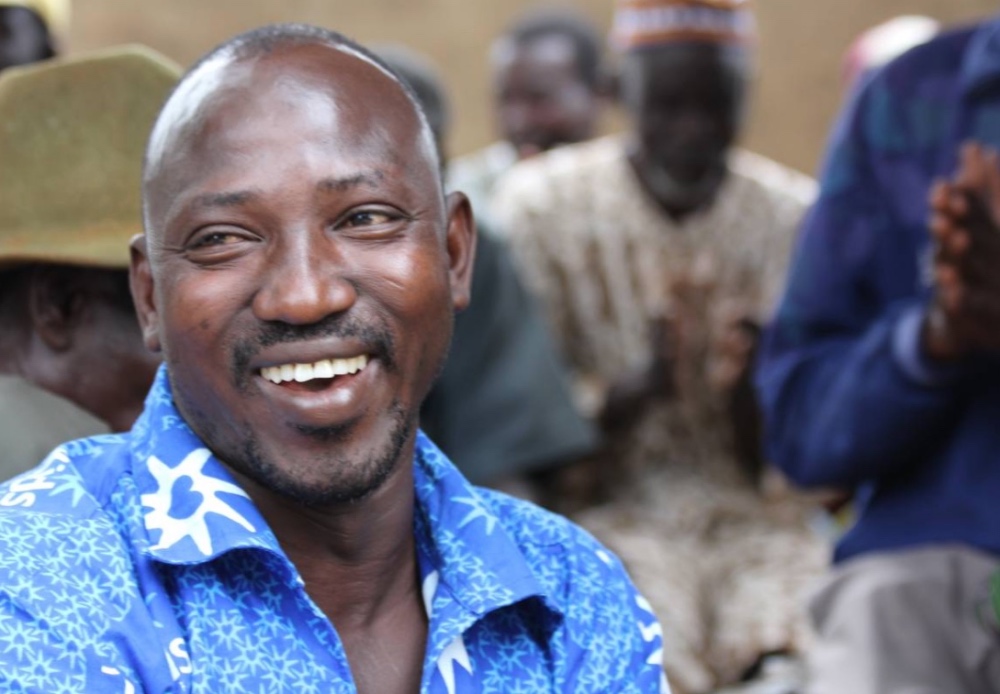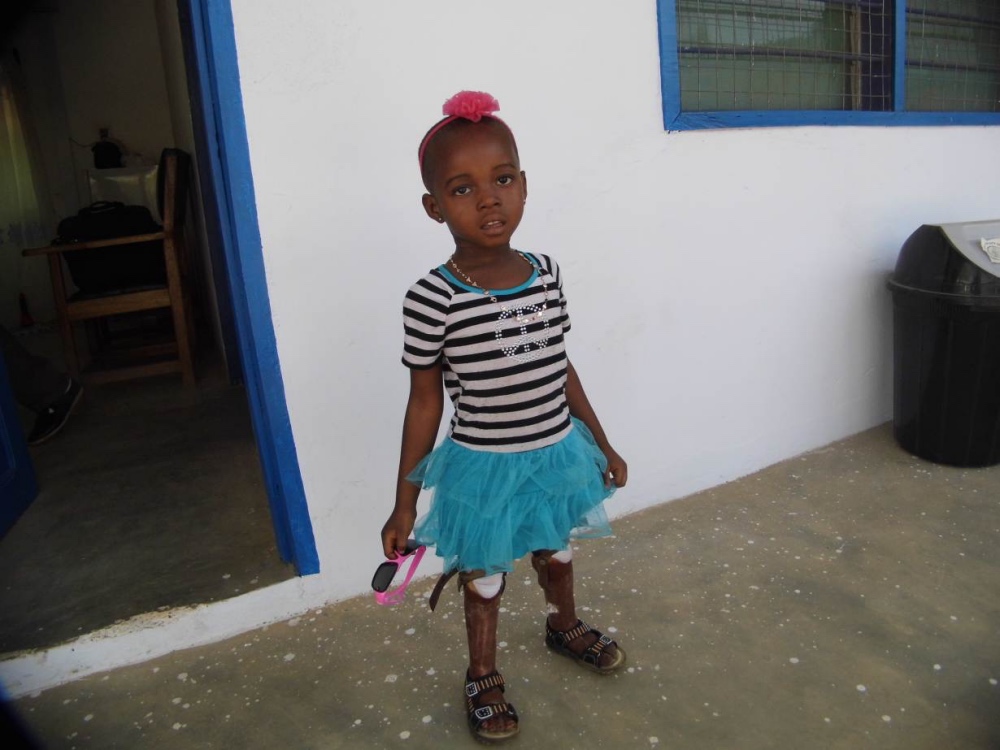
EMMA BATHA, of Thomson Reuters Foundation, reports on the remarkable work of Joseph Asakibeem…
When Angela was born without lower legs, her father believed she was an evil spirit and should be taken to a “concoction man” – a traditional herbalist who would kill the baby and bury her.
But Angela survived after a midwife put her mother in touch with charity worker Joseph Asakibeem, who has devoted his life to saving Ghana’s “spirit children”.

Joseph Asakibeem, project manager with charity Afrikids and winner of the Bond Humanitarian Award 2018 for his work with disabled children, is picture in Ghana’s Upper East Region. PICTURE: Georgie Fienberg/Afrikids.
In parts of northern Ghana, babies born with disabilities are traditionally seen as bringers of bad luck, said Mr Asakibeem, who last month won the Bond Humanitarian Award that recognises hidden “superheroes” for his work with the charity AfriKids.
Until recently, many spirit children were taken to a concoction man who would lock them in a room after administering a poisonous potion.
“The local belief is that if you survive it’s proof you are not a spirit, but if you die it’s confirmation that you are a spirit,” said Mr Asakibeem, a project manager at AfriKids.
“Unfortunately, most times the child dies. They then bury the child in an isolated place away from the village.”
Babies whose mothers die in childbirth, or who are born after something bad has happened to the family, also risk being labelled spirit children.
Angela, now a bright seven-year-old, is one of 110 children rescued by Mr Asakibeem and his team at AfriKids.
“The local belief is that if you survive it’s proof you are not a spirit, but if you die it’s confirmation that you are a spirit. Unfortunately, most times the child dies. They then bury the child in an isolated place away from the village.”
– charity worker Joseph Asakibeem, referring to a practice in which children born with disabilities – so-called ‘spirit children’ – are fed poison to see if they are a spirit.
She has learnt to walk with prosthetic limbs, helps her mother with chores, and is thriving at school. Angela’s parents separated after her birth but her father has begged for a reconciliation after seeing her progress, AfriKids said.
“She’s a very strong girl, she’s smart and a fast learner,” Mr Asakibeem told the Thomson Reuters Foundation by Skype.
“My hope is one day she will become a nurse or teacher and serve as a role model to the community.”
Mr Asakibeem, 41, grew up in the Kassena Nankana region in northern Ghana, where the belief in kinkirigo, or spirit children, was deeply embedded.
In 2005, up to 15 per cent of babies who died were thought to have been killed as spirit children, according to AfriKids.
Mr Asakibeem began talking to parents, village elders and concoction men to change mindsets and dispel superstitions by informing them about the medical reasons for disabilities and promoting healthcare.
Mr Asakibeem said many disabilities in the region were linked to poor nutrition and healthcare during pregnancy, and a lack of access to medical help during labour complications.

Angela, who was born in northern Ghana without lower legs. PICTURE: Supplied by AfriKids.
AfriKids has set up a centre in Asakibeem’s home village, Sirigu, and another in nearby Bongo district, providing help for disabled children, a support group for their mothers and antenatal care for pregnant women.
It gives small loans for businesses like basketry, pottery and poultry farming to help mothers support their families.
One challenge was persuading the concoction men to stop. AfriKids provided livestock and loans to kickstart businesses.
It also takes them to areas where children with disabilities flourish and some of those who once made a living from killing children have become advocates to protect them, Mr Asakibeem said.
No child killings have been reported in Kassena Nankana for 10 years, but Mr Asakibeem said they continue elsewhere.
“We’re now expanding our work to the whole of northern Ghana. My dream is that in 15 years I can stop this practice.”





